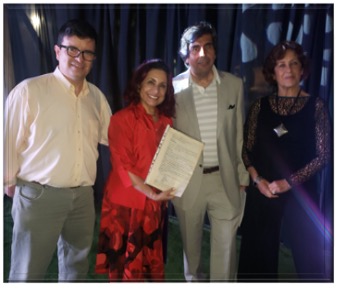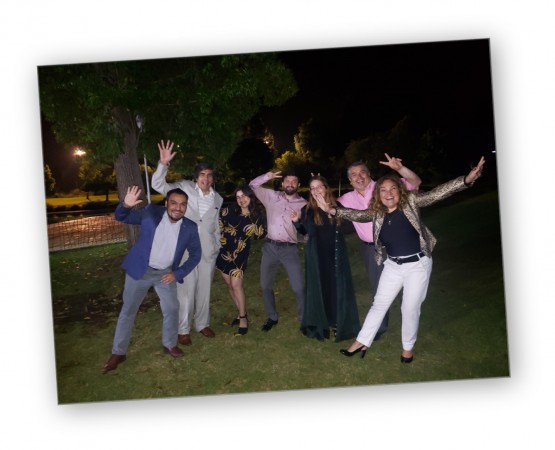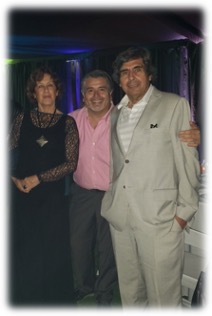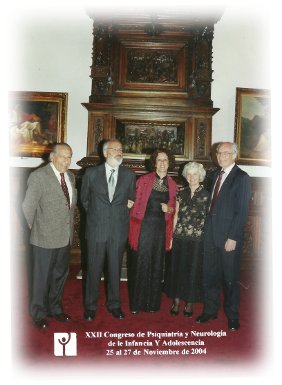SOPNIA has become 50 years old!
By Flora de la Barra Mac Donald
Child & Adolescent Psychiatrist
Adjunct Professor, East Psychiatry department, University of Chile
At the beginning of the 20th century, Chile started implementing public health interventions, childhood protection and public education. The first pediatric hospitals were built, which were academic centers as well, affiliated with the University of Chile. A few pediatricians were awarded scholarships to specialize in Europe and the USA in neuropsychiatry. After their return, they all expanded the specialty. The first one was Dr. Ricardo Olea Guldemont, who founded the first neuropsychiatric clinic and the first special education school in one of the hospitals. He is honored until today by SOPNIA, awarding a prize with his name every two years. He was followed by several other pediatric specialists, creating other neuropsychiatric units in the main hospitals.
A Hospital Group of Child and Adolescent Neuropsychiatry was formed in 1965, the antecedent for the current association. In 1970, the first Child and adolescent psychiatric unit separate from Neurology was started, together with the introduction of family therapy. At that time, the first formally recognized programs for the Specialty were installed. In 1972, the scientific Association of Psychiatry and Neurology of Childhood and Adolescence (SOPNIA) was officially constituted. Its purpose is “To take care of the development of children that will build Chile´s future”. It is multi-disciplinary, including neurologists, psychiatrists, neurosurgeons, and allied professions which form part of mental health teams. Currently, SOPNIA has 159 members.

Current president, Dr. Felipe Mendez, Dr. Adriana Gutierrez past president, donating the original SOPNIA statutes.

Academics and Trainees from University Psychiatric Clinic.
The organization proved to be resilient during the 17 years of military dictatorship, and rapidly developed as soon as democracy was recovered. It has grown in membership, post graduate academic activities and publications at a fast rate, incorporating other universities which have been formed in the last years, as well as growing exchange with other countries and associations.
In 2018, there were 362 child and adolescent psychiatrists in the country, 70% of which work in the public health services, assisting 5,200,000 inhabitants under 19 years of age, a proportion of 6.9 per 100,000 inhabitants. In the last years, there has been a considerable growth of specialists in training, amounting to 128, about 1/3 of child and adolescent psychiatrists in the country.
Once a year, a congress is organized in a different city, where many activities take place: lectures by professors from Chile and other countries, paper presentations about ongoing research, reviews, round tables and seminars for continuous training. Prizes are awarded for the best papers, the Ricardo Olea prize for a member with a distinguished trajectory, and the best work of the adjunct art exhibition. The organization’s official journal Revista Chilena de la Infancia y Adolescencia is published every three months, is peer reviewed and indexed in SCIELO, LILACS and LATINDEX.
Several special interests working groups are very active including developmental disorders, public policies, sleep disorders, neuromuscular and motor disorders, demyelinating disorders and refractory epilepsy. The Web page www.sopnia.com is also very active. This information is expanded in the last issue of the “Revista” which can be browsed, it contains all the data about the history of the Association.

Dr. Alejandro Maturana organizer of 50 years celebration between two Olea prize winners.

We finally got him to come and lecture. From left to right: Prof. Dr. Hernán Montenegro. Claudio Torres (Flora´s husband), Prof Dr. Flora de la Barra (congress president) Marjorie Rutter and Prof. Sir Michael Rutter.

